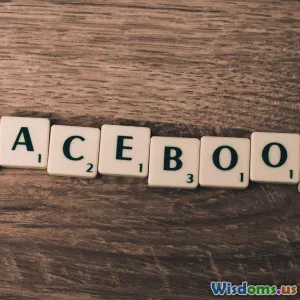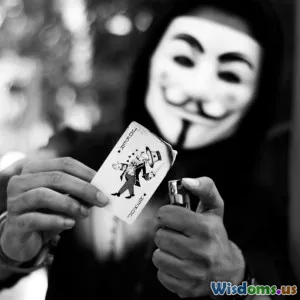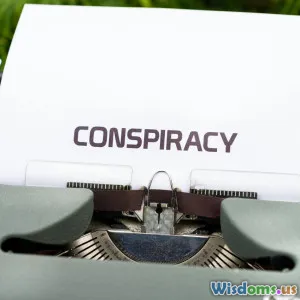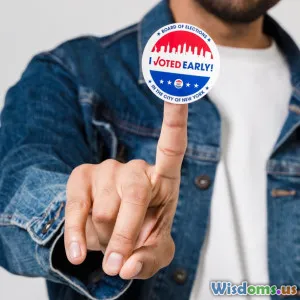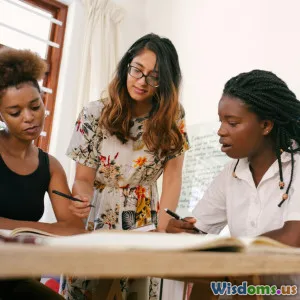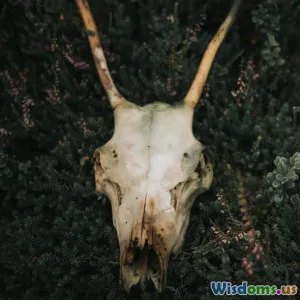
The Role of Secret Societies in Modern Politics
9 min read Explore how secret societies influence modern politics through hidden networks, historical roots, and global examples. (0 Reviews)
The Role of Secret Societies in Modern Politics
Introduction
Secret societies have long captivated popular imagination—tales of clandestine gatherings, cryptic rituals, and covert influence over world affairs abound. While often relegated to the realm of conspiracy theories in popular culture, secret societies historically wield a subtle but persistent force in shaping political landscapes. In modern politics, these organizations, often built on networks of exclusivity and influence, continue to impact governance, policies, and power structures across the globe. This article explores the intricate role secret societies play in the contemporary political sphere, beyond myth and speculation, revealing their historic roots, real-world examples, and implications for modern governance.
Historical Context of Secret Societies
To understand their role today, we must first explore the origins of secret societies. Organizations such as the Freemasons, the Illuminati, and various fraternal orders emerged throughout history with goals ranging from mutual support and philanthropy to political reform.
-
Freemasons: Founded in the late 16th to early 17th century, the Freemasons arose as a fraternity seeking fellowship, moral guidance, and social networking. Historically, they counted influential politicians, monarchs, and thinkers amongst their members.
-
Illuminati: Founded in 1776 in Bavaria by Adam Weishaupt, the Illuminati represented an Enlightenment-era push for secular governance and intellectual freedom, aiming to challenge monarchic and religious authority.
Though many of these groups evolved or faded, their foundational tenets—networking, secrecy, and influence—persist, manifesting in new subtle forms in today’s political arenas.
Secret Societies and Political Influence in Modern Times
Elite Networks and Power Consolidation
In modern politics, the essence of secret societies is arguably best translated through exclusive networks rather than secret rites. Political elites, business magnates, and influential figures often participate in private clubs or societies where networking outside public scrutiny facilitates cooperation and mutual advancement.
Example: The Bilderberg Group, founded in 1954, is an annual, invitation-only conference of about 120–150 political leaders, experts, and business elites from Europe and North America. While not a secret society in the traditional sense, its closed-door meetings have fueled speculation about informal political coordination at the highest levels. Attendees include prime ministers, CEOs, and bankers, illustrating how exclusivity intersects with political and economic influence.
Policy Shaping Through Informal Channels
Secret societies or elite networks can influence policy indirectly through personal relationships and back-channel communications. Access to confidential discussions and informal consultations enables certain groups to anticipate or drive legislative changes before they reach public forums.
For instance, certain elite business clubs or fraternal organizations have historically nurtured relationships between politicians and industry leaders, fostering policies favoring economic agendas aligned with club interests.
The Role of Fraternal Orders in Politics
Despite the reduction in overt political conspiracies, some secret societies maintain a visible presence in political life through symbolic membership or influence.
-
Freemasonry Today: It continues to have members in governmental positions worldwide. While freemasonry publicly disavows political activity, the interconnected membership provides networking advantages. Countries like the United States and the United Kingdom have shown how freemason brothers have held influential offices.
-
Skull and Bones: This elite Yale University society, established in 1832, is known for alumni who have gone on to prominent political careers, including U.S. Presidents George H.W. Bush and George W. Bush. Its secretive nature and member exclusivity underscore the intersections between education, elite networks, and political power.
Conspiracy vs Reality: Separating Fact from Fiction
Skepticism surrounds secret societies, often conflating political complexity with conspiracy. Real influence tends to come through access, trust, and networks—not magical rites or shadow governments. Research into such organizations reveals their impact is less about dictatorial control and more about influence within established systems.
Case Studies of Secret Societies’ Political Impact
The Freemasons in Post-War Europe
After World War II, many Eurosceptics and conspiracy theorists have accused Freemasons of covertly orchestrating political realignments in Europe. Several founding figures of the European Union have been documented as Freemasons, fueling speculation that these networks fostered continental unification behind closed doors.
However, scholars note that while Freemasonry members shared ideals of unity and democracy, their influence was limited by democratic transparency and institutional checks.
The Bilderberg Group and Global Governance
Each year, the Bilderberg conference's secrecy generates headlines claiming it is a shadow world government. While attendees do discuss economics and geopolitics candidly, no formal decisions are made as the group emphasizes open dialogue without agendas.
Nevertheless, historical accounts reflect informal consensus-building among Western political and economic elites, enabling unified policy approaches during events like the Cold War.
The Skull and Bones Society’s Political Dynasty
With members who rose to the ultimate political office in the U.S., the Skull and Bones society exemplifies how elite societal membership can provide lifelong networks facilitating career advancement.
Critics argue this reflects exclusivity detrimental to democratic diversity, while defenders highlight it as a testament to mentorship and networking.
Implications for Democracy and Transparency
While secrecy inherently contradicts democratic transparency, not all secret societies aim to subvert democracy. Some emphasize ethical conduct, philanthropy, or intellectual engagement.
However, exclusivity and back-channel access risk fostering elitism and unequal influence over political processes, raising questions about fairness and accountability.
Increasing societal demands for transparency and democratic participation challenge these groups to evolve or face increased scrutiny.
Conclusion
Secret societies have historically shaped political thought and governance, often as informal networks rather than conspiratorial powers. In modern politics, their legacy continues through elite networking, symbolic membership, and covert influence channels. Understanding these societies’ roles helps demystify political processes and underscores the importance of transparency and accountability.
By moving beyond sensationalism and examining evidence, we can recognize that secret societies often reflect human tendencies for exclusive alliances, which, when unchecked, may impact democracy. Awareness and critical inquiry, rather than fear or myth, provide the best tools to navigate the subtle role of secret societies in modern political landscapes.
References
- Robison, J. (2020). Freemasons and Politics: A Historical Overview. Oxford University Press.
- Turner, C. (2018). Elite Networks in Modern Governance. Cambridge Political Review.
- Johnson, S. (2015). The Bilderberg Group and Global Influence. Global Affairs Journal.
- Shea, M. (2017). Skull and Bones: The Secret Club That Runs America. Yale University Press.
Explore the hidden dynamics between secret societies and political power to gain a clearer view of how unseen networks influence our governance and democracy.
Rate the Post
User Reviews
Popular Posts










